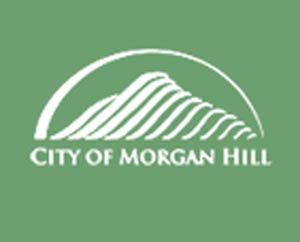Local officials and members of the public have many unanswered questions about the details and logistics of Morgan Hill’s imminent switch from an at-large to a by-district election system, which the current council claims was forced upon them by the threat of a costly lawsuit.
What happens if nobody tosses their hat in the ring to become a candidate in one or more of the new districts in an upcoming council election, leaving the voters in that geographic area with no one to elect? Can the city’s voters continue to elect its mayor on an at-large basis, or would this also violate the California Voting Rights Act, as at least one private attorney contends?
On June 21, the Morgan Hill City Council held its first public hearing since deciding earlier this month to implement district elections, starting with the November 2018 balloting. The June 7 decision to make the switch was in response to a “demand letter,” dated May 2, from the law firm Goldstein, Borgen, Dardarian & Ho, alleging that the current at-large system, in which every voter inside the city limits gets to elect every seat on the council, violates the CVRA.
Specifically, the at-large system—which the city has used since it was incorporated in 1906—results in “vote dilution” and prevents under-represented groups such as Latino voters from “influencing the results of elections,” according to the demand letter.
The same law firm sent a similar letter to the Morgan Hill Unified School District in 2015, subsequently prompting the district’s seven-member board of trustees to make a switch to by-district voting.
Based on council discussion June 21, city staff is recommending the council “create four voting districts in which each council member must live within the district they wish to represent, and voters may only vote for candidates within their voting district.”
The staff report continues, “Any changes to the procedures for electing the mayor would need to be approved by the voters. Staff is not recommending placing a measure on the ballot at this time. Under staff’s recommendation, the mayor will continue to be directly elected through an at-large election allowing all residents (within) the city to vote for mayor.”
There is a difference of opinion on whether an at-large mayor also violates the CVRA if the remaining council members are elected within individual districts. Attorney Mike Baller, who signed the May 2 letter from Goldstein, Borgen, said the council will not meet its requirements under the CVRA if it keeps the mayor’s seat elected at large.
City staff is currently working out a contract with National Demographics Corporation to provide “experience, technical expertise and legal/political know-how to assist the city with a successful and inclusive transition to by-district elections,” reads the staff report. This work will include drawing the four geographic council representation districts within the city limits.
The city is also planning an “extensive engagement effort” to make sure residents and voters are aware of the change. This effort includes distributing information in both English and Spanish, and an interpreter was available for Spanish speakers at the June 21 meeting.
The public outreach process also includes periodic email blasts to residents—such as a June 22 message from city spokeswoman Maureen Tobin—and a series of upcoming public hearings. The next two public hearings are scheduled for June 28 and July 10 at council meeting chambers, 17575 Peak Ave.
“During its discussions, the city…will strive to have an open, transparent and inclusive process,” Tobin’s email says. “More information will be available very soon, and we want to alert all residents of the need for your input and participation in establishing city council districts in Morgan Hill.”
Reluctant change
Morgan Hill resident Doug Muirhead echoed council members’ views on the likely effectiveness of attracting Latino candidates under a district-based election system.
“Changes to district elections under threat of legal action doesn’t guarantee that minority representation will happen,” Muirhead said June 21. “That’s the discussion I wish we were having.”
He also wondered, “If we have a district, and no candidate applies, what happens to that seat?”
When Councilmember Gordon Siebert resigned from the council halfway through his four-year term in 2016, the council eventually appointed Caitlin Jachimowicz to complete his unexpired term. That process started with an application and public interview process, in which more than 20 candidates participated.
But the current council doesn’t even know if they would follow a similar process if confronted with a nameless ballot in a district election.
Morgan Hill resident and Gavilan College Trustee Jonathan Brusco also addressed the council June 21, offering his experience from when the community college’s board switched to district voting in 2015—also under threat of a lawsuit.
“It probably will not give you the best candidates,” Brusco said.
Mayor Pro Tem Larry Carr said the most difficult part will be ensuring voters know about the change to a by-district system before it kicks in November 2018, which is crucial because the change is so drastic and fundamentally different from how local voters have elected their councilmembers in every election until now.
Carr noted that when MHUSD implemented its by-district election system, even after a lengthy public outreach process, many voters still wondered in November 2016 why they were only voting for a single candidate.
He also offered his criticism of the district-based system, and questioned whether it would attract high-quality candidates.
“You can’t handicap (an election) and make a council good,” Carr said. “That’s all this is doing. I’m afraid it’s going to start politicizing everything.”
By approving the change to by-district elections June 7—albeit reluctantly—the council “will take advantage of legal protection that enables cities to have a say in district boundaries and avoid costly litigation,” reads Tobin’s June 22 email.
Staff reports and video recordings of the June 7 and June 21 council discussions can be found on the city’s website, morganhill.ca.gov.








